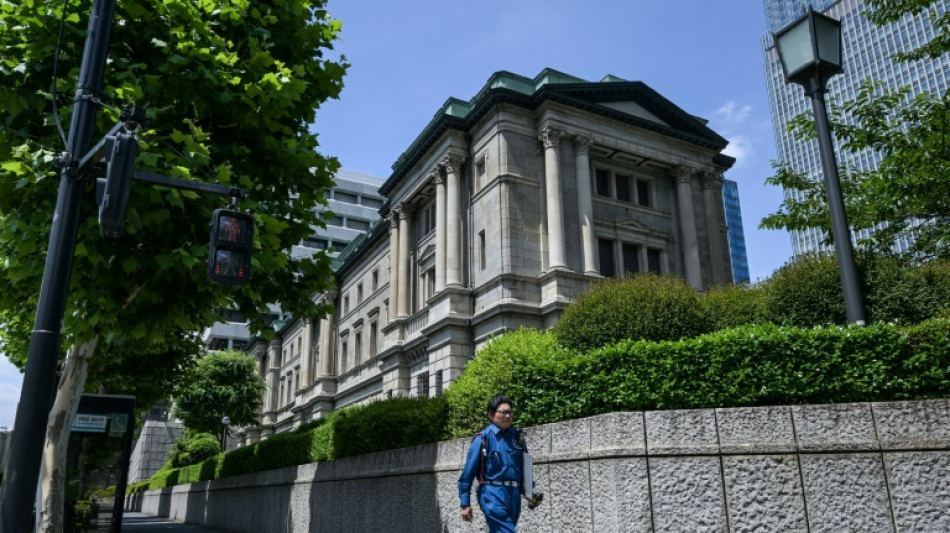
CMSC
0.0900

The Bank of Japan kept interest rates unchanged Tuesday and said it would taper its purchase of government bonds at a slower pace, as trade uncertainty threatens to weigh on the world's number four economy.
The central bank has spent many years buying up Japanese Government Bonds (JGBs) to keep yields low as part of an ultra-loose monetary policy aimed at banishing stagnation and harmful deflation.
But it began moving away from that easing programme last year, as inflation began to pick up and the yen weakened.
After hiking interest rates for the first time since 2007, the bank began winding down its JGB purchases.
It has since lifted borrowing costs several times to 0.5 percent, their highest in 17 years, and continued to buy fewer bonds.
However, analysts say uncertainty sparked by US President Donald Trump's trade war has led bank officials to hold off on more hikes -- and on Tuesday they held rates again, while saying they would slow the pace of JGB reductions.
"This measure was taken in order to avoid the possibility of an abnormal volatility in government bond yields, which would have a negative impact on the economy," bank governor Kazuo Ueda told reporters.
"We believe that it is appropriate for the Bank of Japan to reduce its JGB purchases in a predictable manner, while ensuring flexibility," he added.
Bond purchases will be cut in principle "by about 200 billion yen each calendar quarter from April-June 2026" -- from around 400 billion yen ($2.8 billion) per quarter, the bank's policy statement said.
- Next rate hike? -
The BoJ's main rate is still much lower than the US Federal Reserve's 4.25-4.5 percent.
"Japan's economic growth is likely to moderate, as trade and other policies in each jurisdiction lead to a slowdown in overseas economies and to a decline in domestic corporate profits," the bank said.
However, "factors such as accommodative financial conditions are expected to provide support".
"We still believe the Bank may hike rates in the second half of the year as it remains committed to normalising monetary policy," Katsutoshi Inadome of SuMi TRUST said ahead of the policy decision.
Carol Kong, an analyst at the Commonwealth Bank of Australia, told AFP the BoJ "will likely hold off on rate hikes until there is further clarity on US trade policy".
"While wage growth and consumer price inflation are solid, there are questions over whether domestic demand can withstand additional tightening," she added.
Japan, a key US ally and its biggest investor, is subject to the same 10 percent baseline tariffs imposed on most nations plus steeper levies on cars, steel and aluminium.
Trump also announced an additional 24 percent "reciprocal" tariff on the country's goods in April but later paused it along with similar measures on other trading partners.
Prime Minister Shigeru Ishiba said Monday there had been no breakthrough on a trade deal after talks with Trump on the sidelines of the G7 summit in Canada.
Ueda said policymakers would closely watch the economic impact of the conflict between Israel and Iran, which has buoyed oil prices.
At the same time, "the impact of various trade policies will start to become more pronounced from now on," he said. "It may weigh on corporate earnings, especially manufacturers."
Such a trend, if continues, could impact wages and prices in Japan, he said. "We wish to monitor both factors carefully."
I.Horak--TPP